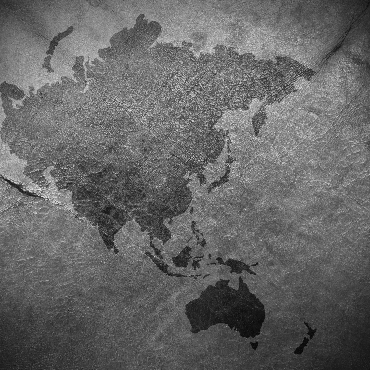A NEW INDO-EUROPEAN TRADE DEAL
On March 10th, India signed a free trade agreement with four members of the European Free Trade Association (EFTA), marking the culmination of talks that lasted more than 16 years. Pursuant to the pact with Switzerland, Norway, Iceland, and Liechtenstein, India will receive investments worth $100 billion over a 15-year period. New Delhi expects this agreement to "boost exports of pharmaceuticals, garments, chemicals and machinery while attracting investments in automobiles, food processing, railways and the financial sector."
The agreement marks a milestone of sorts. The government of Prime Minister Narendra Modi has often criticized its predecessors on their handling of trade, believing past administrations compromised domestic interests and did not do enough to increase foreign investments. Consequently, Modi has prioritized international trade and strengthening India's economic relations. As Modi prepares for what is likely his third term in office, India's top decision-maker is focusing on achieving major economic milestones. New Delhi's efforts do not stop with the recently-signed deal. Free trade deals with both Britain and Oman are now in their final stages, and Indian officials hope to complete them within the first 100 days of Modi's probable next term. (Reuters, March 10, 2024; Reuters, March 29, 2024)
[EDITORS' NOTE: This economic focus has paid major dividends for India - and for Modi personally. It has helped grow the nation's economy exponentially, while making Modi the probable favorite to remain at the helm of the Indian ship of state.]
INDIA COURTS BHUTAN...
Like most South Asian states, Bhutan now finds itself in the favorable position of being courted by one, or both, of the biggest powers in the Indian Ocean Region, India and China. India, for instance, has made major overtures to Thimphu of late. Prime Minister Narendra Modi visited at the end of March and promised the country a $1.2 billion aid package over the coming five years. India's offer is a lucrative one; given Bhutan's current economic struggles, the aid package - in addition to all the other infrastructure projects India is already funding in the country - could benefit the Bhutanese people greatly and lead to new jobs and economic opportunities.
Sri Lanka is hoping to use the new agreement to convert $17 billion of its debt into goods, a process which it has already begun with other creditors. For example, in late February, Colombo repaid Iran $20 million in the form of tea. Additionally, Colombo is pursuing trade agreements with its larger neighbors, India and China. While both countries will likely be open to talks as a way of strengthening their respective regional presence, Sri Lanka is attempting to alleviate its debt without becoming a pawn in China and India's intensifying regional competition. (South China Morning Post, February 4, 2024)
...AND EYES AFRICA FOR STRATEGIC MINERALS
Yet another way India is establishing itself as a global power is by turning to Africa in its pursuit of critical minerals - which are important in the technology and manufacturing industries, as well as the implementation of sustainable development initiatives. Shri Pralhad Joshi, the country's Minister of Parliamentary Affairs, Coal and Mines, has stated that "As an emerging global economic powerhouse, it is essential to understand and harness the potential of critical minerals to fuel the country's growth, competitiveness, and sustainable development." Recently, V.L. Kantha Rao, the Secretary of the Ministry of Mines, announced that India is searching for critical minerals such as copper and cobalt in Zambia, Namibia, Congo, Ghana, and Mozambique. The choice of countries is strategic; more than two-thirds of Earth's cobalt is found in Congo, Namibia is known as one of the top uranium ore exporters, and Zimbabwe is in the top three graphite and chromium ore producers. (Indian Express, March 22, 2024; Energy, Capital & Power, April 2, 2024; India Ministry of Mines, June 2023)
PAKISTAN'S NEW NAVAL ASSETS FORESHADOW A MARITIME ARMS RACE
During a visit to Pakistan in 2015, Chinese President Xi Jinping facilitated the signing of a contract between Islamabad and the China Shipbuilding & Offshore International Company Ltd to build eight attack submarines for the Pakistani Navy. Nearly ten years on, Pakistan has received the first of its eight Hangor-class submarines this month. These diesel-electric attack vessels are a variant of China's Type 039A Yuan-class submarines and are equipped with advanced technology that includes air-independent propulsion (AIP) and state of the art weapons and sensors.
Significantly, these new submarines were named after the "now decommissioned PNS Hangor, which famously sank Indian frigate INS Khukri during the 1971 war," highlighting the fleet's purpose today. These submarines were built with naval deterrence in mind for both China and Pakistan, as they have an advantage in underwater endurance over India's Kalvari class submarines, which lack AIP systems. Moreover, the acquisition of the subs rounds out the naval leg of Pakistan's nuclear triad. To counter this advancement, India has developed a proposal, dubbed P-75I, to build AIP-capable submarines on its own soil by working with Germany, Spain and others. (Indian Express, March 30, 2024; South China Morning Post, May 3, 2024; The EurAsian Times, April 9, 2024)
Want these sent to your inbox?
Subscribe
South Asia Strategy Monitor No. 16
Related Categories:
Arms Control and Proliferation; International Economics and Trade; Resource Security; Border Security; Africa; China; Europe; India; Pakistan; South Asia; Bhutan

